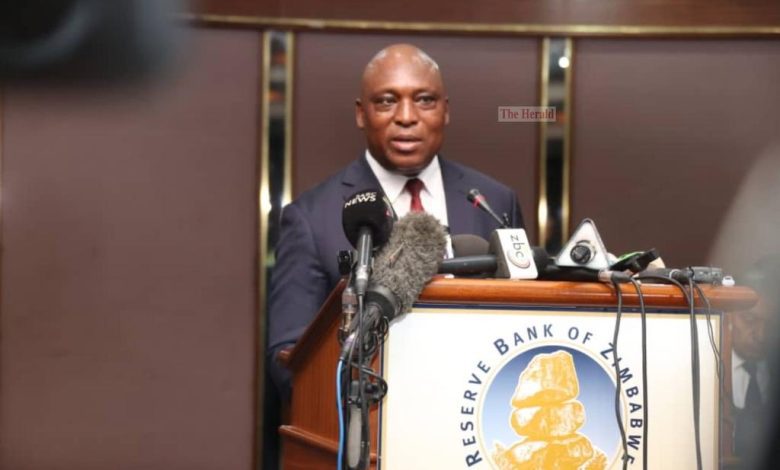Inflation decline forecast to persist
ZIMBABWE’S macro-economic stability and disinflationary trend is expected to continue into next year despite adverse effects of the predicted drought and a combination of internal and external shocks, a Cabinet Minister said yesterday.
The latest official data released by the Zimbabwe National Statistics Agency recently showed that annual inflation increased by an average of 18,4 percent between September 2022 and September 2023.
The World Meteorological Organisation (WMO) in July predicted the commencement of the devastating climate phenomenon, warning that its return would engender rising global temperatures and extreme weather conditions. In Southern Africa, Zimbabwe alongside Madagascar and Mozambique are listed as highly exposed countries to the potent climate phenomenon that is making a comeback in almost years.
Speaking during a webinar from Mauritius where he is attending the International Monetary Fund/ World Bank Spring Meetings, Finance, Economic Development and Investment Promotion Minister Professor Mthuli Ncube said:
“The IMF is actually projecting a growth rate of 3,6 percent which is 0,1 percent higher than what l projected for 2024.
“So, 3,5 percent and 3,6 percent is a ballpark figure for our growth rate in 2024 taking into account …climate change, issues around the energy sector and in other areas where we expect the growth to be slower including a downturn in commodity prices due to global economic slowdown, particularly in the case of China.
“Again, we expect the inflation trend to continue downwards but that is actually linked to our exchange rate and the parallel market which is driving a bit of our inflation.”
Zimbabwe’s annual inflation has fallen from 175,8 percent in June 2023 to 18,4 percent in September this year.
The outlook was that month-on-month inflation would be contained below 3 percent while annual inflation would close this year at below 20 percent.
Through its Monetary Policy Committee, the Reserve Bank of Zimbabwe (RBZ) is on record stating that the prevailing fiscal and monetary conditions are conducive to price sustain stability on the back of the projected 5,3 percent macro-economic growth.
Reserve Bank of Zimbabwe (RBZ)
“We expect that stability is largely engendered so we expect a disinflation trend to continue into 2024,” he said.
Prof Ncube said during the forum in Mauritius, the IMF presented a report on the global economic outlook where the growth target has been downgraded to 2,9 percent from the initial 3 percent.
This is due to geo-political tensions and a slowdown in key economies that are cooling off such as China, resultantly impacting on the commodity prices on the international market.
On sub-Saharan Africa, he said economic growth has also been downgraded marginally by 0,2 percent to 3,3 percent this year and 4 percent in 2024.
“For this year, the downgrade is due to obviously the climate change shocks that we expect in southern Africa as well as some parts of east Africa,” said the Treasury boss.
At the forum, Prof Ncube who is leading the Zimbabwe delegation comprising the Permanent Secretary in the Ministry of Finance, Economic Development and Investment Promotion Mr George Guvamatanga and RBZ Governor Dr John Mangudya is expected to be meeting with various stakeholders who have been supportive to the country’s development agenda.
Professor Mthuli Ncube
“We have already had bilateral meetings with the UK and then we will be having additional bilateral meetings with the IMF, the vice president for World Bank covering eastern and southern Africa . . . I’m just highlighting a few meetings that are critical for personal arrears clearance so as to move those discussions forward.”
He said discussions have also been on key policy areas that finance ministers in Africa have to focus on as well as to tackle inflationary pressures in respective countries.
Prof Ncube said discussions at the meeting are also on ensuring exchange rate stability.
“The third policy area is that of debt sustainability. A good part of Africa, especially countries in sub-Saharan Africa are facing long debt challenges and it’s important that we bring debt under control so that it ceases to be a risk to economic growth and also a risk to attracting foreign direct investment.
“The other area is that of climate change, we must make sure that we try to climate-proof our economies by taking action measures,” he said.-chronicle










